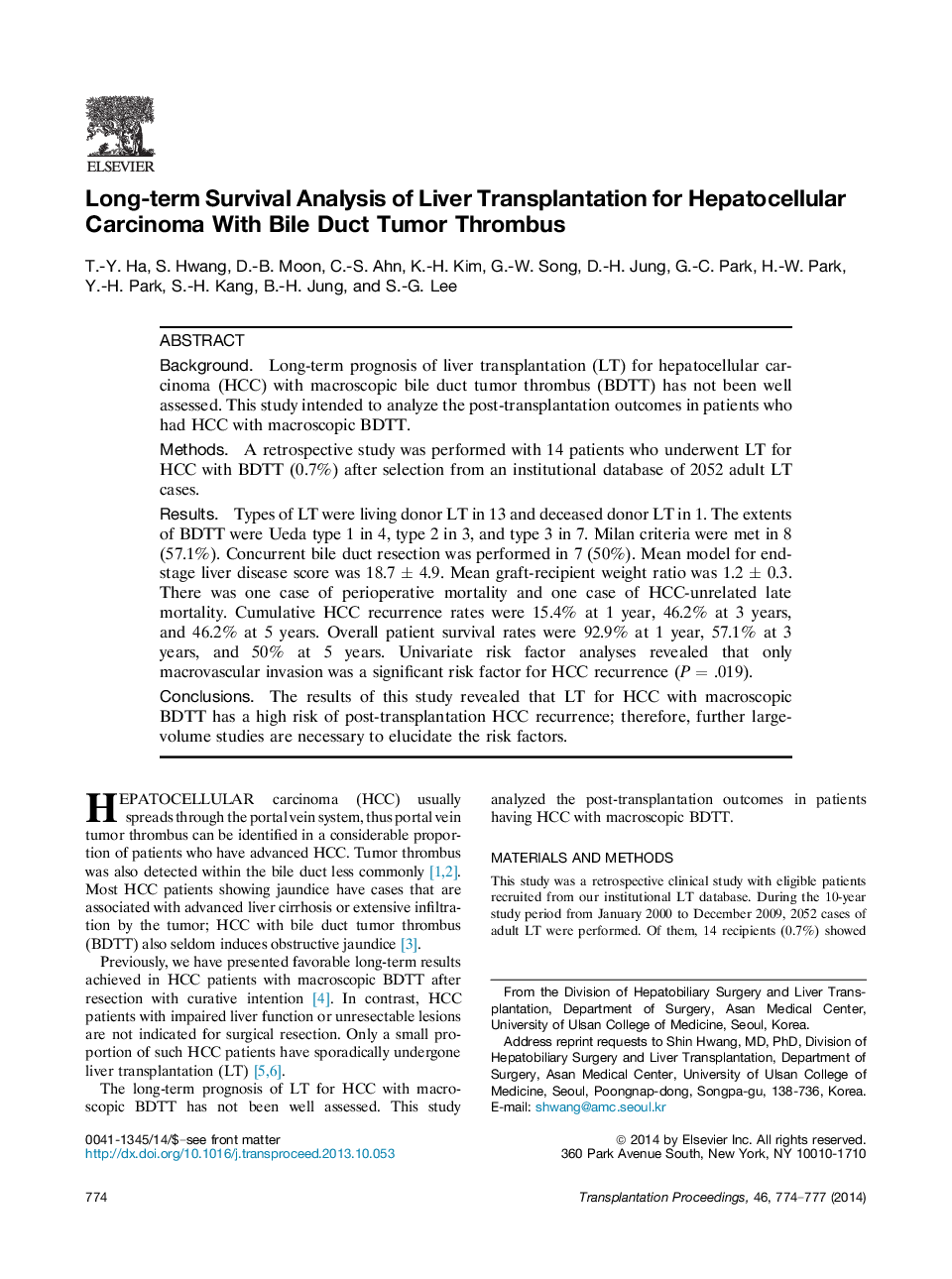| Article ID | Journal | Published Year | Pages | File Type |
|---|---|---|---|---|
| 4258392 | Transplantation Proceedings | 2014 | 4 Pages |
BackgroundLong-term prognosis of liver transplantation (LT) for hepatocellular carcinoma (HCC) with macroscopic bile duct tumor thrombus (BDTT) has not been well assessed. This study intended to analyze the post-transplantation outcomes in patients who had HCC with macroscopic BDTT.MethodsA retrospective study was performed with 14 patients who underwent LT for HCC with BDTT (0.7%) after selection from an institutional database of 2052 adult LT cases.ResultsTypes of LT were living donor LT in 13 and deceased donor LT in 1. The extents of BDTT were Ueda type 1 in 4, type 2 in 3, and type 3 in 7. Milan criteria were met in 8 (57.1%). Concurrent bile duct resection was performed in 7 (50%). Mean model for end-stage liver disease score was 18.7 ± 4.9. Mean graft-recipient weight ratio was 1.2 ± 0.3. There was one case of perioperative mortality and one case of HCC-unrelated late mortality. Cumulative HCC recurrence rates were 15.4% at 1 year, 46.2% at 3 years, and 46.2% at 5 years. Overall patient survival rates were 92.9% at 1 year, 57.1% at 3 years, and 50% at 5 years. Univariate risk factor analyses revealed that only macrovascular invasion was a significant risk factor for HCC recurrence (P = .019).ConclusionsThe results of this study revealed that LT for HCC with macroscopic BDTT has a high risk of post-transplantation HCC recurrence; therefore, further large-volume studies are necessary to elucidate the risk factors.
